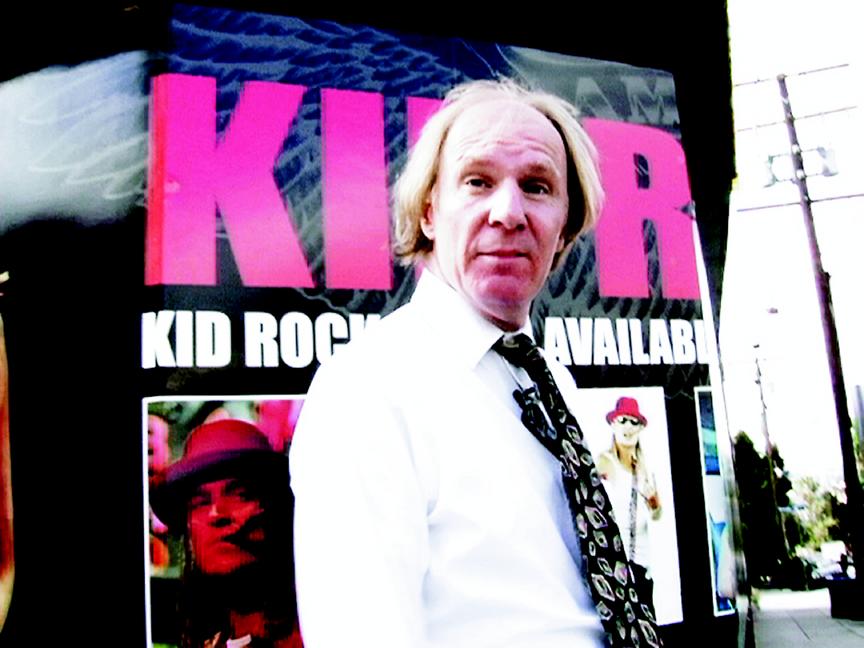Relegated almost to a footnote in musical history, the short-lived New York Dolls achieved little commercial success, but have long been the name to drop for musical cognizati reciting their roots. If not for them, there would be no Sex Pistols, no Clash, no Boomtown Rats (and probably no Green Day, kids). Now, filmmaker Greg Whiteley has added an exquisite footnote to the footnote with his redemptive rock documentary New York Doll.
Doll checks in on Arthur “Killer” Kane, the lumbering, big-nosed Frankenstein of a bassist who provided the backbone for countless Dolls tunes. “I thought he was dead,” remarks more than one fan. But Arthur is still alive, having survived a decade or so lost in the fog of depression and alcoholism. (The same cannot be said of fellow Dolls Billy Murcia, Johnny Thunders and Jerry Nolan, who were hooked on harder stuff and expired before their time.) In the years since the Dolls broke up, Kane has undergone a startling and slightly amusing transformation. He's cleaned up his act, converted to Mormonism and gotten a job as a librarian for the LDS temple in Los Angeles.
Initially, the documentary revels in the shock of seeing Arthur, denuded of his smeared lipstick and fishnets, dressed in a conservative white shirt and tie and chatting about genealogy with elderly Mormons. Still, the evidence of Arthur's hard-living past is etched on his face.
What is so revelatory about Whiteley's documentary is that it isn't here to make fun of Arthur for trading Wembley Stadium and rock stardom for a crummy one-bedroom apartment and the Church of Jesus Christ of Latter Day Saints. Arthur, by all accounts, is a very nice guy–sweet little old ladies and abused ex-wives say so. Sure, he's broke, slightly addled and hasn't picked up a guitar in 30 years, but it's hard to argue that he hasn't found a certain balance in his life. And he hasn't–like a small slice of former rock stars and porn actresses–taken to denouncing his sinful past. Arthur, in fact, looks upon those halcyon high-heeled days with a nostalgic grin. Even his coworkers and fellow Mormons seem amusingly admiring of Arthur's rock 'n' roll past.
Where this documentary really kicks in, though, is the moment that Brit mope rocker Morrissey gets the wild idea of reuniting the Dolls for his annual Morrissey's Meltdown concert in London. The film trails dutifully behind Arthur as he gets his guitars out of hock and flies to England to reunite with his former bandmates Sylvain Sylvain and David Johansen. Can he still play after all these years? Will the band gel? Will the fans show up?
The film doesn't provide a particularly detailed backstory on the New York Dolls. Those who walk in with a basic understanding of the band's history (from Billy Murcia's tragic death in England to the band's acrimonious breakup in a Florida trailer park), will milk a bit more drama from the proceedings. Even so, anyone familiar with the excesses and jealousies of the rock 'n' roll world will understand the tensions between down-and-out Arthur and world-famous David Johansen (whose post-Dolls alter ego, Buster Poindexter, has provided him significant financial resources).
Whiteley rolls out his narrative with an exciting multimedia urgency. Songs unspool nonstop, archival footage abounds, interviews (everyone from Iggy Pop to Bob Geldof) are plentiful. What emerges from this bouncy backbeat of image and sound, however, is something rather unexpected. New York Doll is a touching and heartfelt ode to the abiding spirit of rock music. Freed from his relationship to drugs, alcohol and the legions of groupies, Arthur–new, improved, Jesus-loving Arthur–is still eager to strap on his bass guitar and get up on that stage one more time.
It is a lovely idea that New York Doll fronts. Arthur Kane isn't exactly the poster child for the benefits and rewards of sex, drugs and rock 'n' roll. But we should all be so lucky to have lived his life–not only to have had that 15 minutes of fame when all the world wanted your autograph, but to return 30 years after the fact and do it all again amidst a few thousand people who love you.
New York Doll ends, as well it should, on a note of profound grace and happy happenstance. I can't say I've ever cried at a rock documentary before, but I sure got misty-eyed watching this philosophical, spiritual and just plain rockin' portrait of music's abiding power to create, destroy, condemn and, ultimately, uplift.



